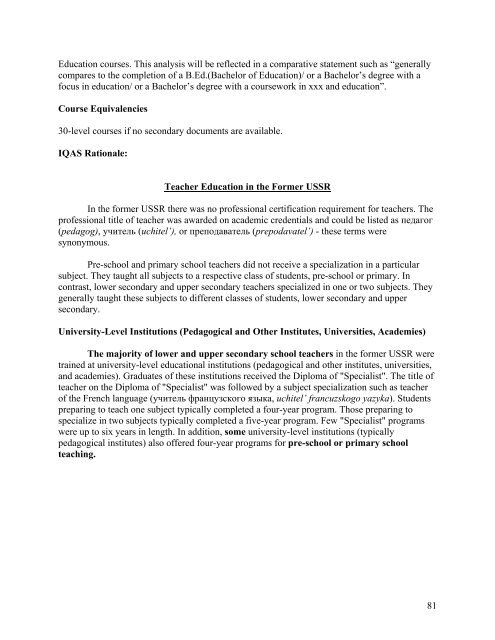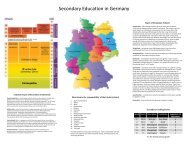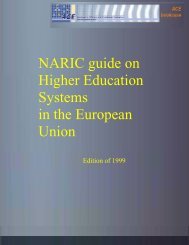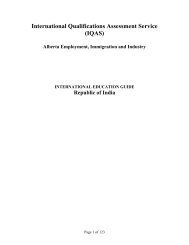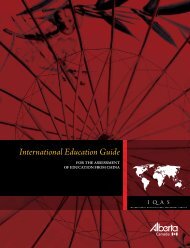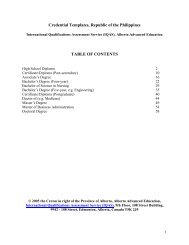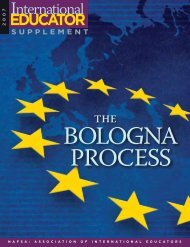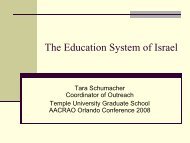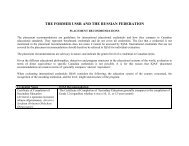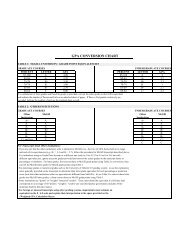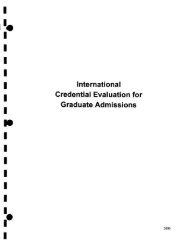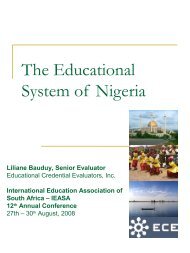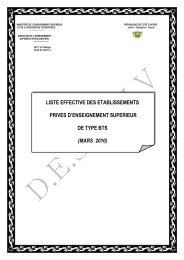Credential Templates, The Former USSR and the Russian Federation
Credential Templates, The Former USSR and the Russian Federation
Credential Templates, The Former USSR and the Russian Federation
You also want an ePaper? Increase the reach of your titles
YUMPU automatically turns print PDFs into web optimized ePapers that Google loves.
Education courses. This analysis will be reflected in a comparative statement such as “generally<br />
compares to <strong>the</strong> completion of a B.Ed.(Bachelor of Education)/ or a Bachelor’s degree with a<br />
focus in education/ or a Bachelor’s degree with a coursework in xxx <strong>and</strong> education”.<br />
Course Equivalencies<br />
30-level courses if no secondary documents are available.<br />
IQAS Rationale:<br />
Teacher Education in <strong>the</strong> <strong>Former</strong> <strong>USSR</strong><br />
In <strong>the</strong> former <strong>USSR</strong> <strong>the</strong>re was no professional certification requirement for teachers. <strong>The</strong><br />
professional title of teacher was awarded on academic credentials <strong>and</strong> could be listed as педагог<br />
(pedagog), учитель (uchitel’), or преподаватель (prepodavatel’) - <strong>the</strong>se terms were<br />
synonymous.<br />
Pre-school <strong>and</strong> primary school teachers did not receive a specialization in a particular<br />
subject. <strong>The</strong>y taught all subjects to a respective class of students, pre-school or primary. In<br />
contrast, lower secondary <strong>and</strong> upper secondary teachers specialized in one or two subjects. <strong>The</strong>y<br />
generally taught <strong>the</strong>se subjects to different classes of students, lower secondary <strong>and</strong> upper<br />
secondary.<br />
University-Level Institutions (Pedagogical <strong>and</strong> O<strong>the</strong>r Institutes, Universities, Academies)<br />
<strong>The</strong> majority of lower <strong>and</strong> upper secondary school teachers in <strong>the</strong> former <strong>USSR</strong> were<br />
trained at university-level educational institutions (pedagogical <strong>and</strong> o<strong>the</strong>r institutes, universities,<br />
<strong>and</strong> academies). Graduates of <strong>the</strong>se institutions received <strong>the</strong> Diploma of "Specialist". <strong>The</strong> title of<br />
teacher on <strong>the</strong> Diploma of "Specialist" was followed by a subject specialization such as teacher<br />
of <strong>the</strong> French language (учитель французского языка, uchitel’ francuzskogo yazyka). Students<br />
preparing to teach one subject typically completed a four-year program. Those preparing to<br />
specialize in two subjects typically completed a five-year program. Few "Specialist" programs<br />
were up to six years in length. In addition, some university-level institutions (typically<br />
pedagogical institutes) also offered four-year programs for pre-school or primary school<br />
teaching.<br />
81


